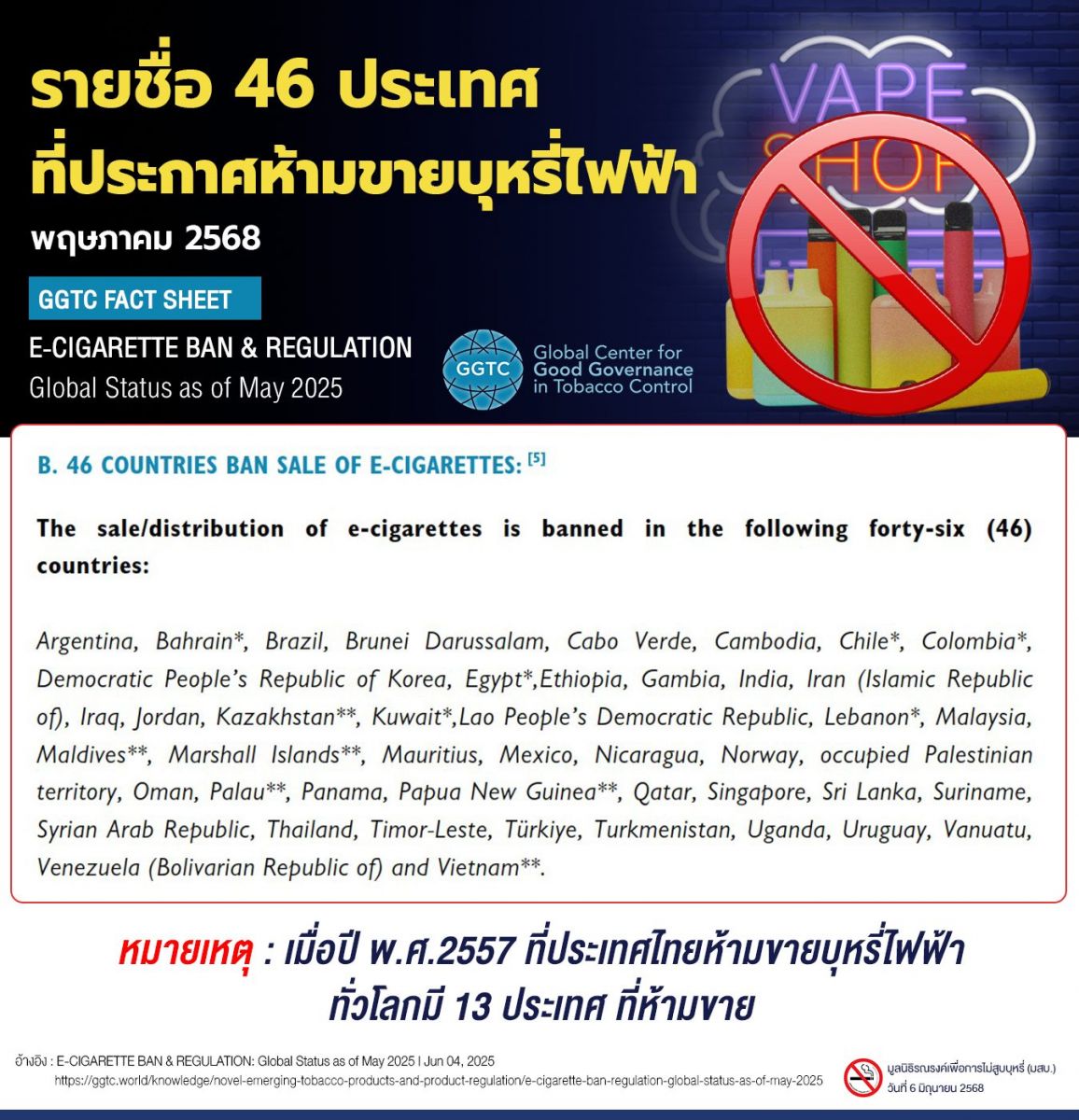Several countries are increasingly banning the sale of e-cigarettes.

A recent report from the Global Center for Good Governance in Tobacco Control in May 2025 stated that the number of countries that have banned e-cigarettes has grown to 46.
When Thailand banned the sale of e-cigarettes in 2014-2015, only 13 countries worldwide had similar bans. At that time, e-cigarettes were still new, and there wasn't much evidence of their harm. However, the World Health Organization (WHO) had already warned countries about their dangers, especially to children and youth, because they contain nicotine, the same addictive substance found in regular cigarettes, as well as carcinogens, heavy metals, and other chemicals.
The main reason more countries are banning e-cigarettes is the rise in youth vaping. The appealing designs of the devices, the addition of thousands of flavors, and marketing campaigns specifically targeting children and young people have overwhelmed countries' ability to regulate them. For developing countries, a sales ban is easier to control and manage than legalizing them.
Governments in various countries are learning from experience, moving from legalizing e-cigarettes to banning them, or forgoing regulation and instead implementing bans.
In Thailand, a ban was in place from the start, but serious enforcement only began this past March. Although it started late, it's better than nothing, and the effort must continue.
The crackdown on illegally imported and sold e-cigarettes has disappointed those who have been lobbying to lift the ban, who criticize the policy as a mistake. However, as the number of countries banning e-cigarettes continues to rise, it's hard to argue that all those nations are making a policy error.
Perhaps the politicians who are still considering lifting the ban in Thailand should reconsider with an open mind.
Reference: https://ggtc.world/knowledge/novel-emerging-tobacco-products-and-product-regulation/e-cigarette-ban-regulation-global-status-as-of-may-2025

